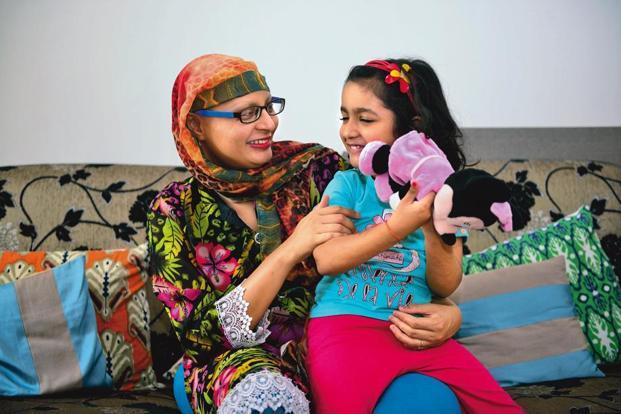 AIADMK supporters hold special prayer for the speedy recovery of party supremo and Tamil Nadu chief minister J. Jayalalithaa, in front of Apollo hospital in Chennai on Tuesday. Photo: PTI
AIADMK supporters hold special prayer for the speedy recovery of party supremo and Tamil Nadu chief minister J. Jayalalithaa, in front of Apollo hospital in Chennai on Tuesday. Photo: PTI
New Delhi: It’s over three weeks since J. Jayalalithaa was admitted to Chennai’s Apollo hospital for “fever and dehydration”, but information about the Tamil Nadu chief minister’s health remains nebulous at best. Hospital bulletins mention antibiotics and respiratory support while her party’s official line is that she is fine and recovering.
On 6 October, Hindustan Times reported that Jayalalithaa summoned an emergency meeting over the Cauvery water sharing issue in the hospital. Media has speculated over the exact nature of her ailment and people have been arrested for spreading rumours about her health, while the opposition has termed her party’s silence “regrettable.”
Jayalalithaa’s health has been a source of constant speculation since last year with The Telegraph reporting that “spells of absenteeism and inactivity have marked Jayalalithaa’s latest stint as chief minister.” The lady hasn’t reacted well to such coverage. She even slapped a criminal defamation case against rediff.com, an online news portal for carrying stories about her health. But no matter the obfuscation by those around her, the fact remains that a chief minister is in hospital and next to no information about her health is available to those who elected her.
But then, this is the drill in India.
The country has a long history of concealing the exact details of the health complications of politicians. Larry Collins and Dominique Lapierre in their book Freedom at Midnight write that Mohammad Ali Jinnah, the leader of the Muslim League, hid his diagnosis of tuberculosis as he worried that public knowledge would lead to resistance for his demands for a separate homeland for Muslims. It may well have. A year after India was cleaved in two, Jinnah succumbed to the disease.
But one doesn’t have to go so far back in history. The Congress party, till date, has not revealed the mysterious illness that saw Sonia Gandhi seek treatment abroad in August 2011. There was a terse announcement about her absence from the country for three weeks and that was that. In 2000, when the National Democratic Alliance was still in power, there were several rumors about the health of then Prime Minister Atal Bihari Vajpayee even as the establishment insisted all was fine. He eventually underwent a knee replacement operation in October of that year. In 2009, however, the government did reveal details of then Prime Minister Manmohan Singh’s surgery. Nor did it make any attempt to hide details of President Pranab Mukherhjee’s angioplasty in 2014 at the Army’s Research and Referral hospital.
“The medical details of an individual, even when an elected representative of the people, is a private matter. But people have a right to know about the health of their leaders,” says Chennai-based political analyst N. Sathiya Moorthy. Politicians, like private citizens are entitled to some privacy but the total secrecy once sees is hard to digest.
Internationally, there are examples such as former New York mayor Rudy Giuliani who waged a very public battle against prostate cancer while the late Venezuelan President Hugo Chavez too was open about his health struggles. The health of Hillary Clinton, the democratic candidate for the Presidency in America, right now, has been brought up in the public arena, especially following her collapse during a 9/11 memorial service.
When health issues can directly impact an elected leader’s ability to govern, then the public is well within its rights to seek answers. An opinion piece on online news portal Newslaundry argues that political circumstances make it “compelling” for people to know more about Jayalalithaa’s health. “The CM holds a tight control over the party and the government…there are bound to be question of governance and stability,” the article states.
In the weeks since Jayalalithaa’s hospitalization, Tamil Nadu has had to deal with the Cauvery water dispute. And then, there is the matter of the GST bill which the chief minister opposes.
N. Bhaskara Rao, chairman at Centre for Media Studies agrees. “For more than 15 days now, the CM is away. You (the party) don’t tell the public what is the matter, they need to suo moto declare her exact condition. There is a government in place but who is in charge? Yes, the chief secretary is running the show but the people need to know.”
It is difficult to pinpoint the exact reasons why the Indian political class chooses to hide its more serious physical ailments from the public. From Jinnah’s fear of his plans being nixed to fear of possibly being seen as vulnerable for some of our more recent leaders, there could be several possibilities. In 2002, Time magazine did a cover story about Vajpayee’s failing health and his ability to lead under the infamous headline, Asleep at the Wheel. The government responded by hauling the reporter over the coals regarding “irregularities” in his papers that allowed him to work in India.
Recent happenings in Tamil Nadu suggest that one shouldn’t expect a change of attitude regarding transparency in this manner any time soon.
[“Source-Gadgets”]

